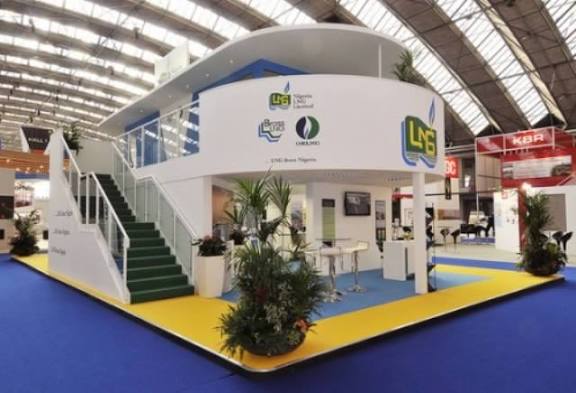Oil and Gas
Why Protesting Workers Shut Down $10 Billion NLNG Train 7 Project

BY GBOGBOWA GBOWA
The Nigerian Liquefied Natural Gas (NLNG) Train 7 Project, a $10 billion expansion aimed at boosting Nigeria’s gas export capacity, has reached over 90% completion. But in September 2025, operations came to a grinding halt in Bonny Island, Rivers State, as hundreds of workers staged a protest that shut down the site.
The protest was led by welders, fitters, and junior staff employed under Daewoo Engineering and Construction Nigeria (DECN), one of the contractors in the Saipem-Chiyoda-Daewoo (SCD) Joint Venture.
The workers, who accused the company of illegally deducting ₦150,000 monthly from their salaries for tax clearance over the past two years, said they were pressed into staging the protest over failure by their employer to issue them with Tax Identification Numbers (TINs) or tax receipts, leaving them without proof of compliance.
They further alleged that despite the regular deduction of their wage of the taxes, there have been no remittances to the federal government, according to internal audits cited by workers.
Speaking anonymously, a pipe worker said “We’ve been asking for our TINs and tax receipts for two years. They kept deducting money but gave us nothing. We feel cheated.”
The protest began with picketing of the administrative building and quickly escalated, with workers vowing not to vacate until their demands were met.

Even though the workers expressed dissatisfaction with their labour leaders for failing to get management to do the needful, the National Association of Plant Operators (NAPO), whose members form a large part of the workforce, backed the protest.
According to NAPO President, Harold Benstowe, “This anomaly has existed since the Base project. Workers deserve proof of tax compliance. We may involve anti-graft agencies if this isn’t resolved.”
NAPO also warned security agencies not to intimidate workers, threatening legal action if force was used.
Meanwhile, DECN has denied the insinuation of fraud, stating that while Tax deductions are remitted to the Rivers State Internal Revenue Service (RIRS), TINs are issued by the Joint Tax Board (JTB) and Federal Inland Revenue Service (FIRS), and not the company.
As negotiations to resolve the dispute continues, the company has requested two weeks to resolve the issue and provide verifiable tax certificates.
Tail or head, the shutdown raises broader concerns chief among which is transparency in corporate tax practices within Nigeria’s oil and gas sector, worker rights and accountability in mega infrastructure projects, and the potential delays and cost overruns in a strategic national project nearing completion.
With negotiations ongoing, workers are demanding full refunds and proper documentation. The NLNG and its contractors face mounting pressure to resolve the crisis swiftly, not just to resume operations, but to restore trust.

























